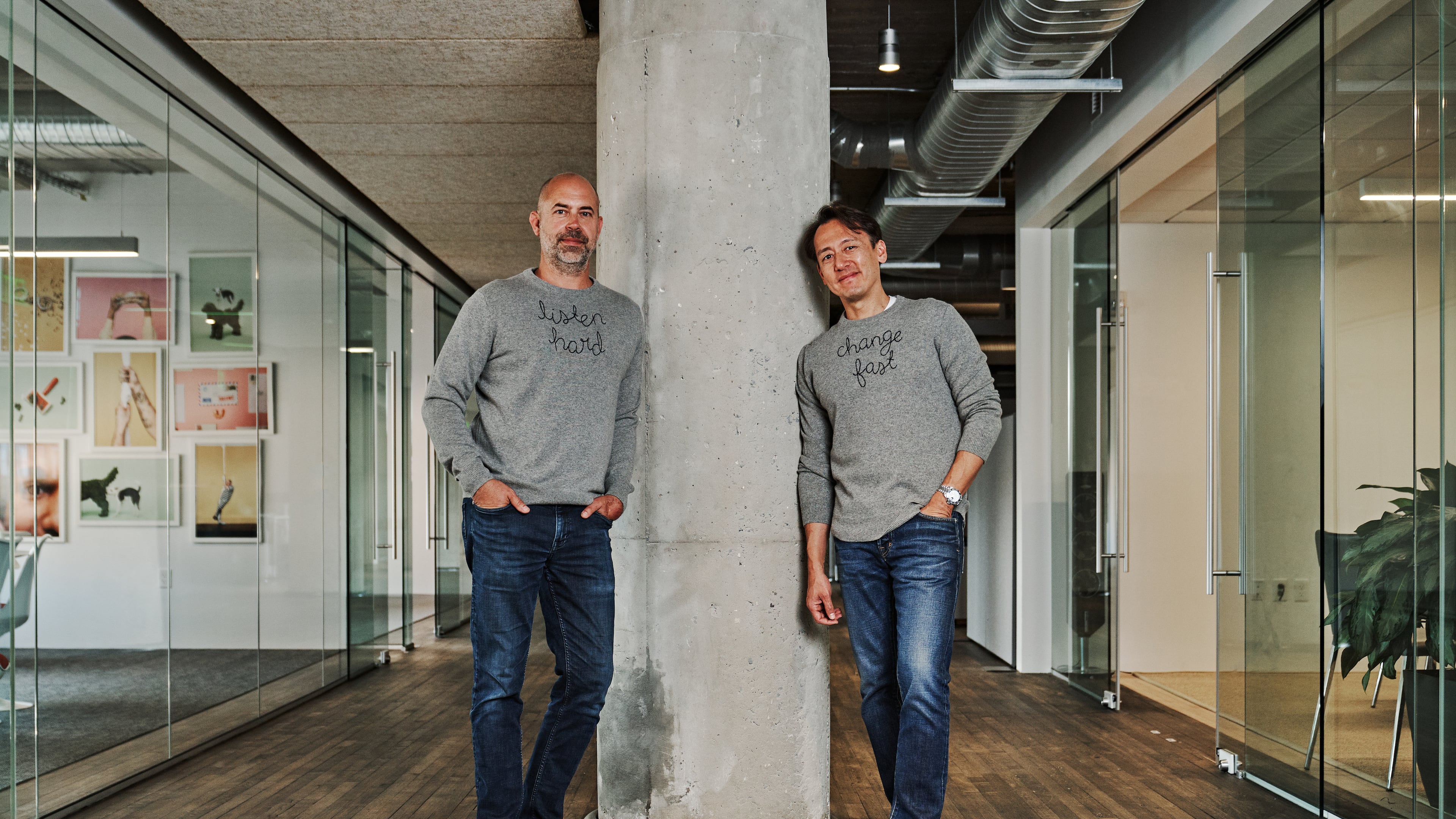Mailchimp’s $12B sale shows Atlanta’s tech mettle

The $12 billion sale of Atlanta’s Mailchimp announced this week is one of the biggest ever involving a homegrown tech company and shows the growing strength of Atlanta as a tech hub.
Silicon Valley’s Intuit, maker of TurboTax and QuickBooks, on Monday agreed to pay $12 billion in stock and cash for Mailchimp, a digital marketing company that grew organically over more than 20 years and never took help from outside investors.
As part of the deal, Mailchimp’s employees will profit handsomely from the sale. Intuit will provide $300 million of restricted stock to Mailchimp’s workforce of 1,200 employees, including 900 in Atlanta.
Ben Chestnut, 47, one of the company’s founders, declined to say how many employees the sale and stock disbursement will turn into Mailchimp millionaires when the deal closes, which is expected by the end of January.
The sale is the latest among Atlanta startups that shows how far the city has developed as a tech hub in the U.S. Kabbage, an online lender, was acquired by American Express for an undisclosed amount in 2020. The company was valued at more than $1 billion, according to Forbes. Atlanta companies Greensky and Airwatch also reached “unicorn” status — valuations of a billion dollars or more — and sold in 2014 and 2013, respectively. At least seven other Atlanta tech startups have reached that rare valuation.
Tech companies and the year that they reached billion-plus dollar valuations. (Value is calculated from listings on stock exchanges, business sales prices, Forbes magazine estimates and company information.)
Calendly (productivity, communications): 2021
Salesloft (sales engagement, analytics, communications): 2021
Greenlight (financial technology): 2020
Bakkt (financial technology): 2020
One Trust (privacy, security and risk management): 2019
Sharecare (health technology): 2018
Rubicon (sustainability, smart waste management): 2017
Companies sold to other companies
Kabbage (financial technology): 2015
Greensky (financial technology): 2014
Airwatch (mobile device management): 2013
Chestnut told The Atlanta Journal-Constitution Tuesday he will remain with Mailchimp, which started as a tiny business focused on creating e-mail greeting cards, and continue to grow it. Mailchimp will hire an undetermined number of new workers, he said.
Intuit will integrate Mailchimp’s marketing, social media and communication tools into QuickBooks, which will help Intuit’s small business users connect with new customers, said Alex Chriss, Intuit’s executive vice president.
“Our intent is pure acceleration,” Chriss said. “We see this as a massive growth opportunity and we will continue to invest in Mailchimp.”

Atlanta, like Mailchimp, grew its initial tech scene without a lot of outside help. Some early tech entrepreneurs had success and turned huge windfalls into funds that plowed money back into the local economy.
After selling automated marketing company Pardot in 2012, Dave Cummings founded Atlanta Tech Village as a place to incubate businesses. More than 300 companies have emerged from Atlanta Tech Village, raising at least $1.2 billion in capital, according to the group’s website.
Alan Dabbiere started or helped start three Atlanta tech companies that became unicorns and plowed money from their sales into other Atlanta startups, such as One Trust. As the process repeats itself, the number of tech entrepreneurs in Atlanta gains momentum, he told the AJC ten months ago.
“I think Atlanta is getting to critical mass now that we are seeing more people spin out as entrepreneurs,” he said.
Chestnut declined to say if he would invest his windfall into other Atlanta companies.
But longtime Atlanta tech investor Charlie Paparelli said, “Even if a small percentage of that money gets returned as startup capital, it’s going to be transformative to the Atlanta technology community.”
The area’s successes are also attracting outside investors. According to venture funding data analysis firm CB Insights, Atlanta companies received $3.1 billion in funding in the first two quarters of 2021, which beats any previous full year of investments in metro Atlanta.
Several Atlanta tech companies have recently closed big investment deals, such as SalesLoft, which makes sales-management software. In January, it raised $100 million, boosting its valuation to $1.1 billion, according to the company.
Atlanta’s success has also caught the attention of the big established tech firms. Microsoft is building two data centers in the metro area and plans to build a corporate campus on the Westside that could eventually host hundreds of employees. Online rental marketplace Airbnb plans to open a tech hub in Atlanta and create hundreds of jobs.
Many companies want to boost their minority workforce, and Atlanta has many Black college students and graduates with technology backgrounds. Atlanta was the highest-ranked Southeast city last year, and in the nation’s top 10, for the quantity and quality of its tech talent, according to real estate firm CBRE.



